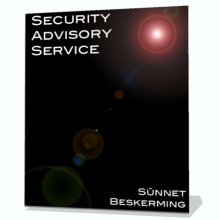New Top Level Domains Open a Broader Internet for All
Until very recently, all domains on the Internet were described through some form of Latin script. That has all changed, with ICANN enabling support for non-Latin language support in domains. Egypt, Saudi Arabia, and the UAE have been the first countries to take advantage of this new ability to describe website addresses in their native tongue, rather than through romanised equivalents, or in non-native script.
This advancement is significant, as it allows for languages written right-to-left to have full support and entire addresses to be described using native scripting. Even with this support, there needs to be some form of correlation between the underlying networking systems and hardware, which still operate based on raw numerical IPs and latin scripted databases, and the newly introduced non-Latin script support. As such, the new Arabic suffix for Egypt maps to the .masr CCTLD (Country Code Top Level Domain), which is Arabic for Egypt.
On computers without the appropriate font or browser support for non-latin scripts, the new domains will look like a nonsensical mishmash of characters, but on systems with the appropriate fonts and browsers, the new domains open up a whole new world of viability on the Internet.
Arabic isn't the only non-latin script that support is being demanded for, with support for a number of asian scripts and Russian (expected to then support all cyrillic languages) being requested from ICANN.
This support, and the forthcoming other languages to be added, is a wonderful step to improve availability and accessibility across the globe, with an ever increasing number of non-latin script users getting access to the Internet on a daily basis.
A risk, which isn't immediately obvious, is that this opens up a new world of opportunity for scammers and phishers to register domains that will visually appear very similar to legitimate sites in the address bar, but which will have a base address significantly different, thanks to being registered in a non-Latin script. By relying on alternate character rendering, this could cause problems for users who may not be able to determine the slight differences between otherwise similar looking characters. It also means that software and tools designed to help detect phishing or XSS attacks will have to expand their repertoire significantly to interpret and assess a much broader range of character and rendering sets.
Ultimately, the introduction of this new support is a wonderful thing for the Internet as a whole and anything that encourages more people to interact with the Internet is to be welcomed.
9 May 2010
Social bookmark this page at eKstreme.
Alternatively, Bookmark or Share via AddThis
Do you like how we cover Information Security news? How about checking out our company services, delivered the same way our news is.
Let our Free OS X Screen Saver deliver the latest security alerts and commentary to your desktop when you're not at your system.
Comments will soon be available for registered users.
 Subscribe to our feed.
Subscribe to our feed.